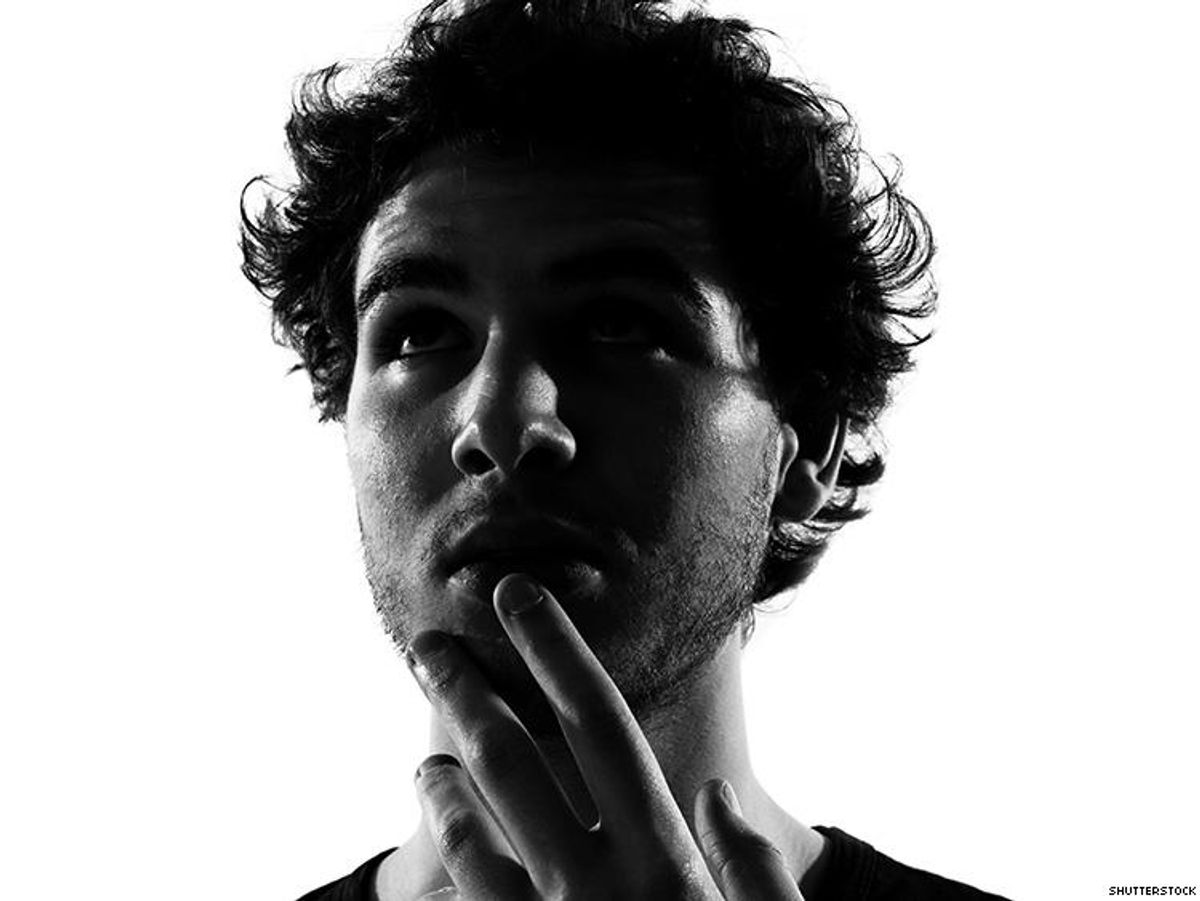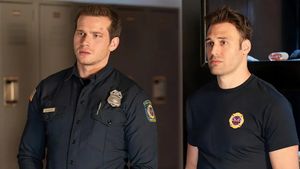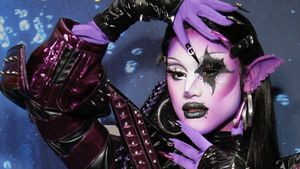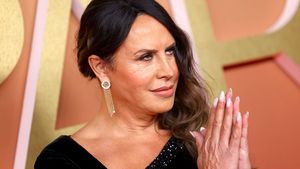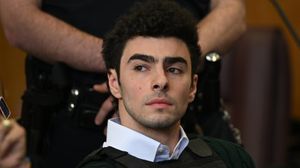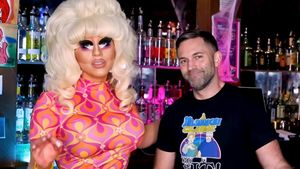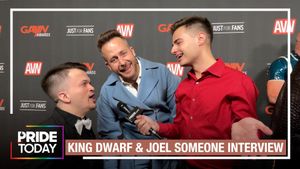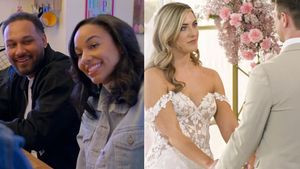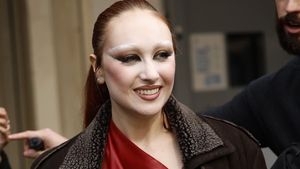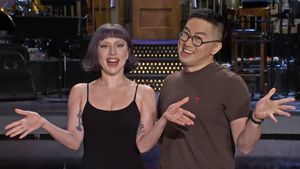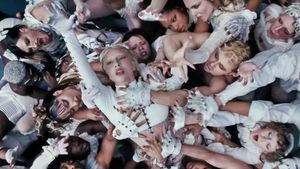At the end of each year, we Americans like to reflect and take stock personally and as a culture. The president gave his State of the Union on Tuesday, for example. Part of my own introspection was going back and rereading all of my Advocate articles. How awesome it was that I've been given the opportunity to have my ramblings presented to an international audience. OK, and it also inflates my ego, I won't lie.
Along the way, I noticed all the new "20 LGBT Moments in 2015," "16 Names to Know in 2016," "The 2015 40 Under 40," lists that various websites, blogs and such put up. Yes, of course I was looking for my name -- duh, didn't I just mention feeding my ego?
However, I did notice something as I read through these lists of celebrated LGBT folks. They were mostly the same people. Not like the same exact people, but types of people: LGBT activist, writer, actor, artist, athlete, musician, blogger, YouTube star, prolific tweeter ... yes, some were recognizing notable Twits. One absence perplexed me, and no, it wasn't mine, I'm not that conceited. Where were the non-activists and entertainers? All the doctors, researchers, scientists, civil servants, teachers, politicians, and such, where were they?
I remember back in school when it was Black History Month we learned about all sorts of famous black people, not just activists such as Angela Davis and Martin Luther King Jr. Writers like Langston Hughes and Maya Angelou, actors like Sidney Poitier and Hattie McDaniel and such were our education. Being the military history buff that I was, I always did my paper on people like Benjamin O. Davis Jr., the first black general. Since I lived in Mississippi, we learned about Hiram Revels, the first black U.S. senator. We learned about Dr. Daniel Williams, who performed the first successful heart surgery, and Charles Drew, who discovered blood types and developed blood banking. We learned about George Washington Carver, Annie Easley, Lloyd Quarterman, and Percy Julian. All of these people who were scientists, inventors, and doctors who contributed to human advancement and were black.
Now, let me be perfectly clear, I am in no way disparaging what LGBT activists do for us. I do not dismiss the positive effects that out gay actors and characters have on our society. In fact, one of my favorite Hollywood stories is about the time Nichelle Nichols, the actress who played Uhura in Star Trek, met Martin Luther King Jr. And the slap scene during In the Heat of the Night, I'll argue, is one of the most powerful moments of the civil rights movement. I don't discount the importance of bloggers and writers ... I mean, come on, I am one.
I'm simply asking, Isn't there more to us?
I remember when Laverne Cox and Carmen Carrera were making the talk show and interview circuit, just two years ago. Right at the beginning of this wave of trans awareness and empowerment that's swept through our country, these women were asked that rudest and invasive of questions -- about their junk. At first they were caught off guard, and I remember the look on Carmen's face when Katie Couric leaned in and salaciously asked about her gender-confirmation surgeries. That look of repulsion and discomfort on Carmen's face said it all. She then squared her shoulders, narrowed her eyes, and said, "There is more to trans people than that."
And there is, so much -- not just with trans people but the entire LGBT spectrum, just like there is with men, women, and every color of skin. There is so much beyond the LGBT identity. Look at the Ebony Power 100 for 2015, and of course the hottest celebrities like Kendrick Lamar and Lee Daniels, fashionistas like Charles Harbison, musicians like Prince, celebrations of Black Lives Matter and activists like Rashad Robinson were all there. But the list was also praising teachers and educators, corporate executives, politicians, scientists, doctors, and spiritual leaders.
The most striking thing as you go through the list is that you don't see people who are just educators in black history, leaders of black-focused corporations, writers about just black women's issues, or black community activists, but writers, executives, scientists, activists, and entertainers who were amazingly successful and whose race was a footnote to their identity, success, and contributions. Many of these people I had never heard of nor had any reason to. I mean, I couldn't pick the senior vice president at General Motors or the head of human resources at MillerCoors out of the list of corporate executives. Yet, for black people, those are names they celebrate because they are role models, their Power 100 for 2015. Those are people about whom the community can say, "Hey, look what we accomplished and achieved this year!"
That, to me, is what seems missing sometimes from our celebrations of the most important people or events in the LGBT community, the people who are being role models and activists not for what they have only done for the community but for our society, and what they've achieved that's independent of their sexual orientation or gender identity. I know that there has to be some sort of trans person out there whose research into quantum physics is changing the way we view our universe. There's got to be a gay man out there who is just raking in the money hand over fist by revitalizing a construction equipment company. Somewhere there's a lesbian who's designing the next great tech advancement or maybe developing a lifesaving surgery. There's some LGBT person training to be an astronaut, making important policy decisions behind the scenes in the White House, rescuing people from a burning building as a firefighter, or helping Syrian refugees. It's kind of frustrating that as I write this, I'm trying to find examples of these types of people and can't find any because we don't seem to talk about them.
All of us, not just LGBT media, need to spend time talking about these figures. And yes, we can have our cake and eat it too. We can revel in how awesome and cute Anderson Cooper is hanging out with his boyfriend, but we can also be proud of his amazing news coverage of a major event. We can be just as proud of the influence of Yves Saint Laurent on the fashion industry as we are of Tim Cook's impact on technology. Yes, Laverne Cox is blazing trails in Hollywood just as much as Lynn Conway was in helping to create the modern computer. When it comes to people in our history like Alan Turing, we can hold his life up as an example of the tragedy of anti-LGBT discrimination as well of how awesome it was that the man's intelligence was probably more important to winning World War II than the B-17 bomber. To this day, the Holy Grail of computer artificial intelligence is called the Turing Test. We'll know the machines are about to overthrow humanity because they can pass a test established by a gay math nerd.
That's why I say we should celebrate and recognize LGBT people not just for doing great LGBT things but simply for being great at something. In time, when people study our history and learn about our contributions, they'll praise not only our activists and artists but also our thinkers and builders. Why wait until we're history to do the same?

AMANDA KERRI is an Oklahoma City-based comedian and a board member for OKC Pride. Follow her on Twitter @EternalKerri.
